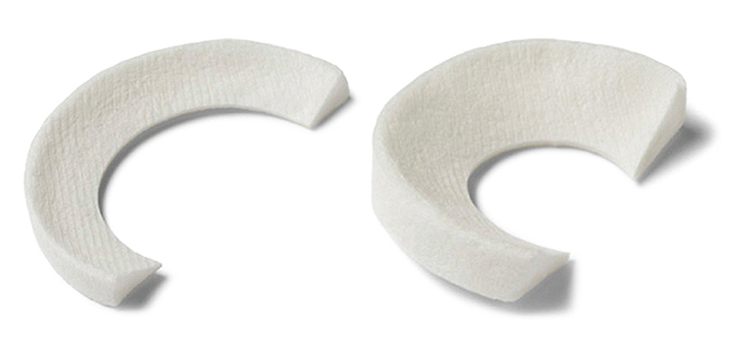The meniscus is a C-shaped cartilage structure located between the femur and tibia in the knee joint. It acts as a shock absorber and provides stability to the knee. Meniscus tears are a common sports injury that causes pain, swelling and decreased mobility in the knee. The traditional treatment options for torn meniscus include arthroscopic partial meniscectomy (removal of torn portion) or meniscal repair. However, meniscectomy leads to increased risk of knee osteoarthritis in the long run due to loss of meniscal tissue. Meniscal repair is also not always possible depending on the location and severity of tear. This has led surgeons to explore new treatment options like collagen meniscus implants.
What is a Collagen Meniscus Implant?
A collagen meniscus implant is a medical device made of highly purified collagen from bovine Achilles tendon. It is developed to replace the damaged portions of human meniscus after a partial or total meniscectomy. The implant attempts to restore the normal biomechanics and protect the articular cartilage in the knee joint. The implant is manufactured through a patented manufacturing process to mimic the orientation of collagen fibers found in human meniscus. It has a similar thickness, shape and vascular channel structure as the native meniscus.
Surgical Procedure for Implantation
The implantation of Collagen Meniscus Implant is done arthroscopically. During the surgery, any remaining damaged portions of the meniscus are removed first. The size and shape of the resulting meniscal defect is then measured. An implant of matching dimensions is selected and hydrated in a saline bath. It is then sutured firmly into the defect area between the tibia and femur using small screws or biodegradable arthroscopic implants. Suturing anchors help secure the implant and encourage ingrowth of vessels from the surrounding tissue. The surgery takes around 60-90 minutes to complete.
Clinical Studies on Efficacy and Safety
Several clinical studies have evaluated the efficacy and safety of Collagen Meniscus Implants for partial and total meniscal defects. Here are some of the key findings:
– A 5-year study on 122 patients showed significant improvements in pain, activity levels and knee function after implantation with no serious adverse events. MRI scans revealed good integration of implant within 12-24 months.
Improved clinical outcomes
– Another randomized controlled trial compared outcomes of partial meniscectomy alone vs meniscectomy with collagen implant placement. They found significantly better knee function scores and less progression of osteoarthritis in the implant group at 2 years.
Preventing onset of arthritis
– A long term 10-15 year follow up study indicated that implantation helped reduce the incidence of knee osteoarthritis from almost 100% after meniscectomy alone to around 30-40%. This shows it can prevent long term degenerative changes.
– Minimal resorption of implant was seen between 1-5 years in majority of patients. No propagation of tears into the implant or implant dislocations have been reported.
Overall, studies have demonstrated the collagen meniscus implant has a good safety profile with ability to restore normal knee biomechanics, relieve pain and slow progression of osteoarthritis when used for appropriate meniscal defects.
Potential Candidates for Implant
The collagen meniscus implant is most suitable for use in partial or total meniscal defects that are not amenable for repair. Some of the potential candidate criteria include:
– Young, active individuals below 55-60 years of age
– Isolated tear in the vascular/red zone of the meniscus
– Discoid meniscus or complex tears not repairable
– Bucket-handle tears with more than 50% of the meniscus remaining
– Patients who had previous meniscectomy and have symptoms of pain or instability.
It is contraindicated for people with clinical signs of knee arthritis, malalignment or ligament instability. Proper patient selection through clinical and radiological evaluation helps maximize the benefits of this treatment.
Future Scope
Collagen meniscus implantation is a promising nonsurgical alternative to treat torn menisci and prevent long term osteoarthritis. As more long term data emerges, it may become a preferred option even for repairable tears. Newer generations of implants made with biocompatible synthetic materials are also being developed. The surgical techniques are also being refined for better fixation and incorporation of grafts. With further research into indications, implantation methods and long term outcomes, collagen meniscal implants have the potential to revolutionize management of meniscal injuries in the future. For appropriately selected patients, it provides an opportunity to return to normal activity levels and delay total knee replacement surgery for many years.
*Note:
1. Source: Coherent Market Insights, Public sources, Desk research
2. We have leveraged AI tools to mine information and compile it


